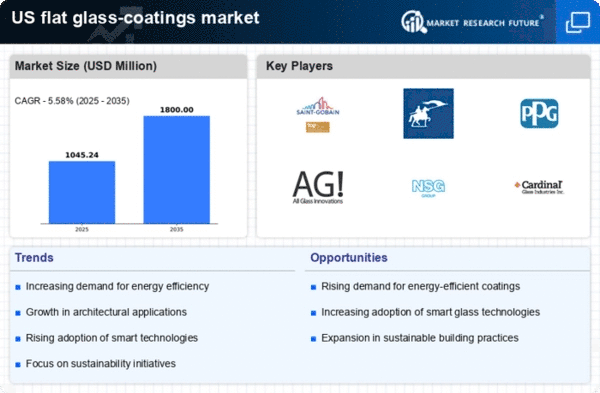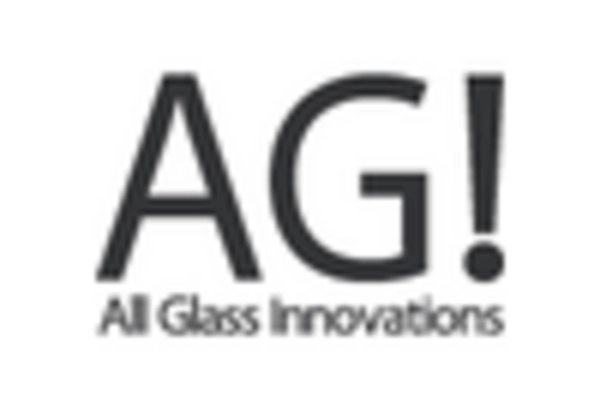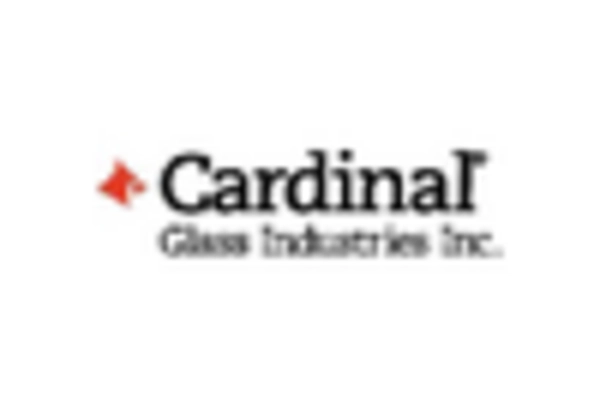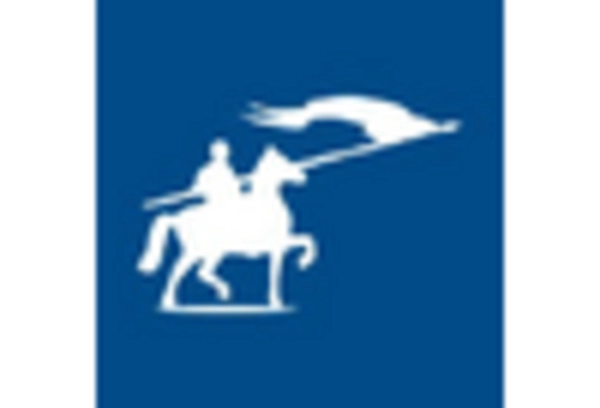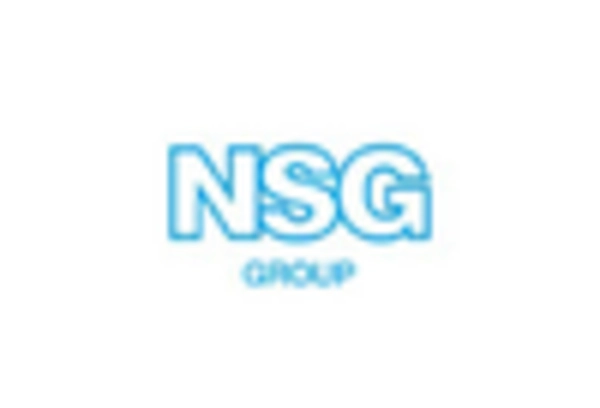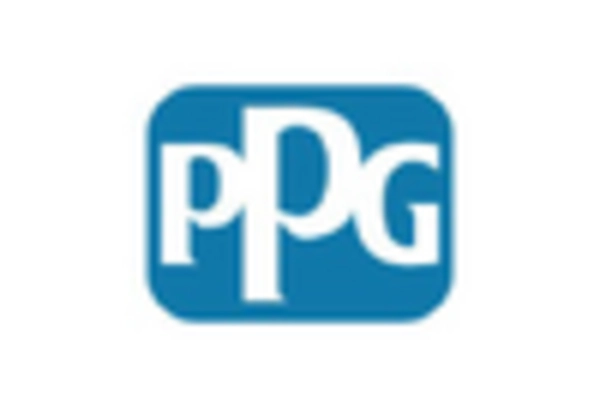The flat glass-coatings market is currently characterized by a dynamic competitive landscape, driven by innovation, sustainability, and technological advancements. Key players such as PPG Industries (US), Guardian Industries (US), and Saint-Gobain (FR) are at the forefront, each adopting distinct strategies to enhance their market positioning. PPG Industries (US) emphasizes innovation in product development, particularly in energy-efficient coatings, while Guardian Industries (US) focuses on expanding its manufacturing capabilities to meet rising demand. Saint-Gobain (FR) is actively pursuing sustainability initiatives, aiming to reduce its carbon footprint through eco-friendly product lines. Collectively, these strategies contribute to a competitive environment that is increasingly focused on technological differentiation and environmental responsibility.In terms of business tactics, companies are localizing manufacturing to reduce lead times and optimize supply chains. The market structure appears moderately fragmented, with several players vying for market share, yet dominated by a few key firms that hold substantial influence. This competitive structure allows for a diverse range of products and innovations, fostering a healthy environment for growth and development.
In October PPG Industries (US) announced the launch of a new line of solar control coatings designed to enhance energy efficiency in commercial buildings. This strategic move not only aligns with the growing demand for sustainable building materials but also positions PPG as a leader in the energy-efficient coatings segment. The introduction of these coatings is expected to bolster PPG's market share and reinforce its commitment to sustainability.
In September Guardian Industries (US) expanded its manufacturing facility in Texas, significantly increasing its production capacity for flat glass coatings. This expansion is crucial as it enables Guardian to better serve the North American market, responding to the increasing demand for high-performance glass products. The strategic investment reflects Guardian's commitment to maintaining a competitive edge through enhanced operational capabilities.
In August Saint-Gobain (FR) entered into a partnership with a leading technology firm to develop smart glass solutions that integrate AI for energy management. This collaboration is indicative of the trend towards digitalization in the flat glass-coatings market, as companies seek to leverage technology to enhance product functionality and customer experience. Such strategic alliances are likely to redefine competitive dynamics, emphasizing innovation over traditional price competition.
As of November the competitive trends in the flat glass-coatings market are increasingly shaped by digitalization, sustainability, and technological integration. The focus on strategic alliances is evident, as companies recognize the need to collaborate to drive innovation and enhance product offerings. Looking ahead, competitive differentiation is expected to evolve, with a shift from price-based competition to a greater emphasis on innovation, technology, and supply chain reliability. This transition may redefine market leadership, as companies that successfully integrate these elements are likely to emerge as frontrunners in the evolving landscape.


